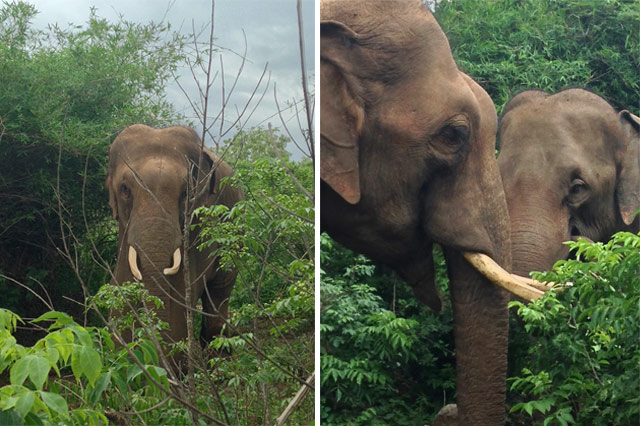Sunder's New Home

Sunder Sunder with a Friend
On June 6th, the Bannerghatta Biological Park’s Elephant Care Centre (ECC) in Bangalore, India, welcomed a new resident…Sunder. Sunder gained international attention on account of his previously inhumane circumstances in captivity, and celebrity advocates for his rehabilitated welfare, including Sir Paul McCartney.
Earlier this month, the ECC also welcomed Active Environment’s Margaret Whittaker, as an advisor for the design of an enclosure for Sunder and training methods that will help improve his welfare. Margaret is also the Interim Director of Elephant Care for The Elephant Sanctuary.
PETA India has been campaigning since 2012 to help intensify public scrutiny around Sunder’s captive situation; and earlier this year, the Bombay High Court ordered his transfer “on an emergency basis.”
PETA India recruited Margaret to be involved in helping provide Sunder a home that was much more conducive to his health needs. Margaret has provided a lot of leadership in The Elephant Sanctuary’s Protected Contact (PC) training program, and she will be creating a PC training program at ECC that will allow Sunder to receive medical care in a non-invasive way. Sunder’s new enclosure will offer him a freedom-of-movement that he hasn’t known in a long time. Once the training program is established, Margaret will focus on a plan to improve the health care of Sunder’s feet – toward which The Sanctuary has donated a complete set of foot-care tools.
Given contemporary knowledge of elephant behavior and progressive animal-management concepts, human domination of elephants in order to train them is considered archaic. Active Environments designed what is known as Protected Contact training—which relies on positive, rather than negative, reinforcement to instill new behavior in elephants. With PC training, caregivers function outside the elephant social hierarchy, and do not attempt to establish dominance—thus providing captive elephants with the autonomy they need to feel safe, so that, at their own choosing, they might permit necessary interactions with humans for veterinary, preventative, and supportive care.
"With the help of Active Environments, PC training affords the ability to improve elephants’ physical and psychological health, allows them to forge amicable social bonds with each other, and heals some of the mistrust of humans that they may be experiencing as a result of inhumane treatment in their pasts,” said Kelly Costanzo, Managing Lead / Elephant Care at The Elephant Sanctuary in Tennessee. “Our team is grateful to be among the many supporters of Sunder’s journey to a more compassionate facility that will hopefully enable him to recover from his previous circumstances and live more like an elephant.”
